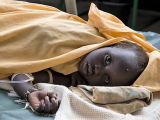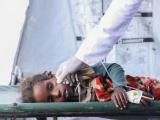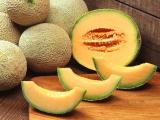Dec 21, 2010
CBS says terrorists plotted to poison restaurant food
CBS News, citing anonymous sources, reported yesterday that federal officials warned executives in the hotel and restaurant industries that terrorists might try to poison food with ricin and sodium cyanide. The plot, uncovered earlier this year, called for putting the two poisons in salad bars and buffets at many locations on one weekend, the story said. It said officials from the Department of Homeland Security (DHS), the Department of Agriculture, and the Food and Drug Administration (FDA) briefed a small group of corporate security officials from the hotel and restaurant industries about the threat. The plotters are believed to be tied to al Qaida in the Arabian Peninsula, the same group that tried to blow up cargo planes over the East Coast in October, CBS reported. The network said a "key intelligence source" confirmed that the threat is credible. DHS spokesman Sean Smith declined to comment on the report but noted that al Qaida for years has stated its intention to try to attack with unconventional weapons.
Dec 20 CBS News report
Egypt among countries reporting H1N1 activity
Egypt's health ministry said it received reports of 218 cases of 2009 H1N1 flu last week, bringing the country's total to 533, including 30 deaths, since October, Daily News Egypt reported today. Abdel Rahman Shahin, ministry spokesman, said clinical studies indicate the rate is normal for seasonal influenza and should rise as outdoor temperatures cool. He said the 2009 H1N1 activity in Egypt is an example of periodic outbreaks of the virus that the World Health Organization (WHO) said it expected to see in the post-pandemic phase. In England, which has also reported a spike in 2009 H1N1 infections, a spokeswoman for the health department said today that 302 people are being treated in intensive care units for influenza infections, Reuters reported. Elsewhere, Sri Lanka's health ministry yesterday issued an alert advising pregnant women, healthcare workers, transportation employees, armed forces, and law enforcement personnel to get vaccinated against the 2009 H1N1 virus as a precaution, the Asian Tribune reported today. The WHO said in its latest update that 2009 H1N1 activity had recently peaked in Sri Lanka, one of the few tropical countries reporting flu transmission. Dr Sudath Peiris, a senior epidemiologist at the health ministry, said Sri Lanka had already distributed the 400,000 doses of 2009 H1N1 vaccine from the WHO and is requesting 1 million more.
Dec 22 Reuters story
Dec 22 Asian Tribune story
Pandemic burdened pediatric ICUs in Australia, New Zealand
The H1N1 pandemic put a "substantial burden" on pediatric intensive care units (PICUs) in Australia and New Zealand in the winter of 2009, according to a report published online by Pediatrics. The researchers found that, of 107 children who were admitted to PICUs in the two countries from June through August of 2009, 83 were sick with the pandemic virus. Children with H1N1 illness accounted for 773 bed-days and 5.8% of specialist PICU beds during the period. Thirty-nine of 75 children with available information had one or more other illnesses, including 20% who had neurologic conditions, and 13 of the 83 children had neurologic presentations. Eighty percent of the patients required ventilation, a higher rate than in adults. Six (7%) of the 83 children died, compared with 114 (17%) of 668 adults who were treated for the virus in ICUs.
Dec 20 Pediatrics abstract
CDC urges holiday travel precaution for cholera
The US Centers for Disease Control and Prevention (CDC) yesterday urged people who are traveling to Haiti and the Dominican Republic over the holidays to take precautions against getting sick with cholera. It advised that people take their own supplies of water purification tablets and oral rehydration salts. Precautionary measures include using safe water for drinking, preparing food, brushing teeth, and washing hands, eating food that is hot and thoroughly cooked, and using preventive bathing and toilet measures. In other developments, the Dominican Republic yesterday said it has received reports of 9 more cholera cases, raising the total to 59, Dominican Today reported. The public health ministry said 55 of the patients have recovered and 4 are receiving treatment and are in stable condition.
Dec 20 CDC press release
Dec 20 Dominican Today story
Outbreak strain found in Sally Jackson cheese
The Escherichia coli O157:H7 outbreak strain that has sickened eight people in four states has been identified in a sample of Sally Jackson raw milk cheese, Food Safety News reported yesterday. Dr William Keene, an epidemiologist with the Oregon Department of Public Health, said the sample came from cheese served at a wedding attended by one of the sick patients. On Dec 17, Sally Jackson Cheese, based on Oroville, Wash., recalled its artesian soft raw milk cheeses after an investigation into the illnesses with the same outbreak strain suggested links to the products. An FDA inspection of the Sally Jackson facility found sanitation problems related to employees, equipment, utensils, and the building and its maintenance.
Dec 21 Food Safety News story
Dec 17 CIDRAP News scan


















